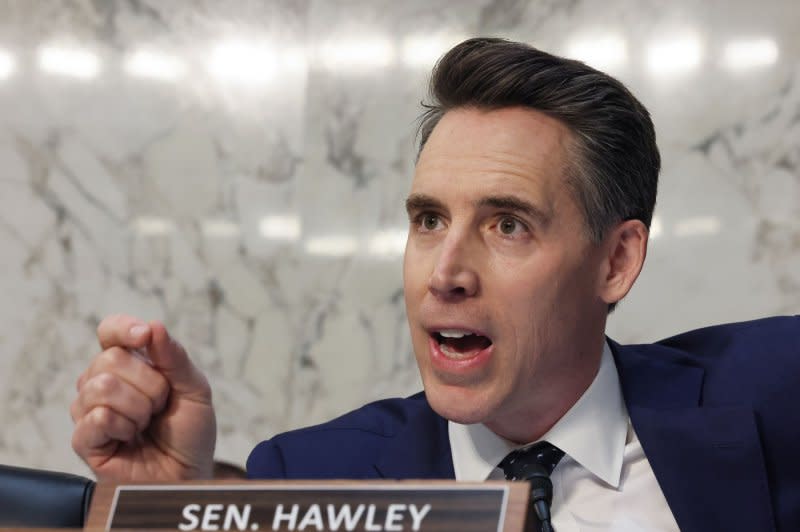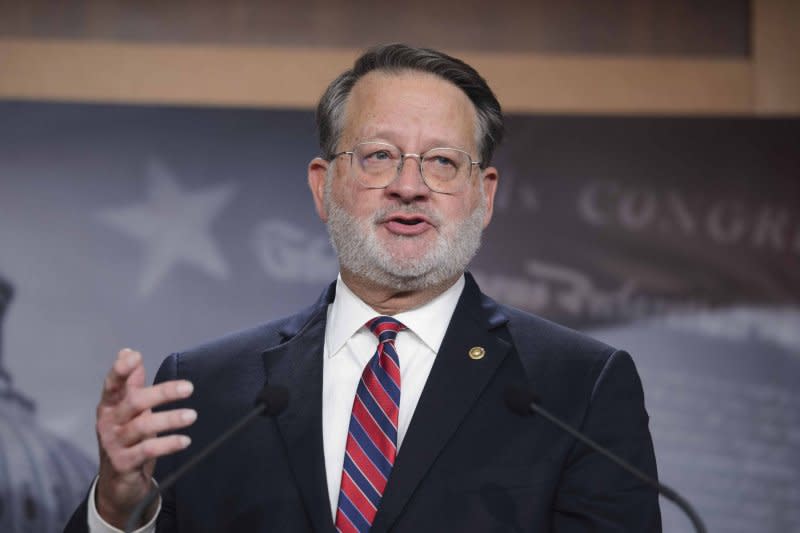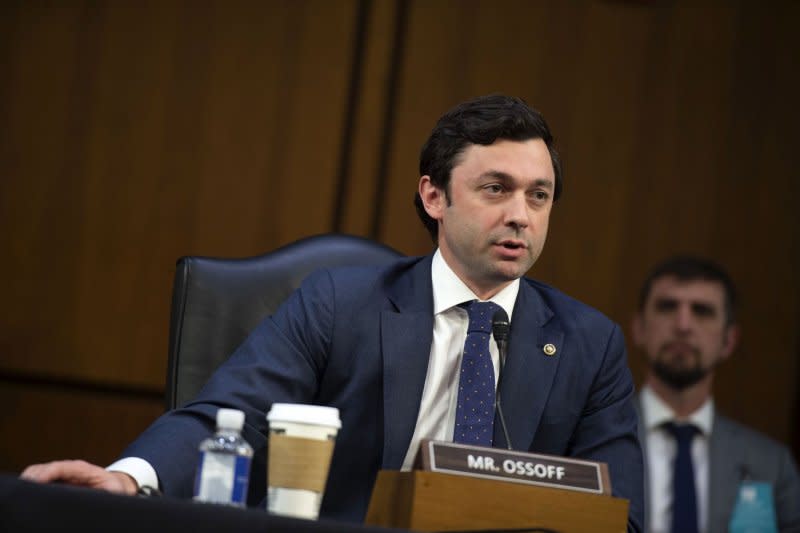Bipartisan Senate proposal would ban stock trading for members of Congress, president

July 10 (UPI) -- A bipartisan group of senators unveiled Wednesday an agreement on legislation that would ban members of Congress, including the president and vice president, from stock trading.
The renewed effort is being lead by Sens. Gary Peters, D-Mich., Jeff Merkley, D-Ore., Josh Hawley, R-Mo., and Jon Ossoff, D-Ga.
"Americans deserve to have confidence that their federal elected officials are making decisions that are in the best interest of the American public and not in the interest of any personal finances," Peters, the Senate's Homeland Security and Governmental Affairs Committee chair, said Wednesday at a press conference in Washington, adding that the Senate panel would take the "historic step" to consider the bill on July 24.
This will be the first time Congress has formally considered such legislation.
Under the bill's framework, members of Congress would be "immediately" banned from trading stocks if it becomes law, according to Merkley. The legislation if passed beginning March 2027 would then prohibit lawmakers' spouses and dependent children from trading stocks as well.

Also starting that year, the U.S. president, vice president and all members of Congress would have to divest from any "covered investments."
But Hawley says he is not sure now if enough members will support the measure to get it passed.

"Congress should not be here to make a buck," the Missouri Republican said Wednesday on Capitol Hill. "There is no reason why members of Congress ought to be profiting off of the information that only they get."
Experts say the privileged information given to members of Congress in both the House and Senate chambers provides an unfair advantage in investing not afforded to a typical American.
Ossoff in 2022 joined Sen. Mark Kelly, D-Ariz., introducing a similar bill to prohibit congress members from trading stocks while in office, a move that was followed when Hawley introduced a similar bill of his own.
Former House Speaker Nancy Pelosi, D-Calif., whose own husband Paul Pelosi is a wealthy investor who often makes trades, only last year began to soften in her opposition to such legislation, dismissing such ideas to prevent lawmakers from participating in the "free market economy."
But Pelosi's switch on the issue was only after she got a letter singed by 27 House members -- two Republicans and 25 Democrats -- urging members of Congress be banned from trading or owning stocks. That letter also was addressed to then-Minority Leader Kevin McCarthy, R-Calif.
In September last year, former Rep. Stephen Buyer, R-Ind., was sentenced to nearly 2 years behind bars after being convicted of four counts of securities fraud stemming from two insider trading schemes allegedly created with non-public information. However, the alleged crimes took place after Buyer had left Congress in 2011.
Former President Barack Obama signed the Stop Trading on Congressional Knowledge Act, known as the STOCK Act, on April 4, 2012, a law that only then officially banned insider trading by members of Congress.
Meanwhile, it took until 2022 for the Federal Reserve to enact rules banning or restricting certain investment and trading activities by Fed officials, designed to "support public confidence in the impartiality and integrity of the Committee's work by guarding against even the appearance of any conflict of interest."
Joshua Graham Lynn, CEO of RepresentUs, a non-partisan non-profit group focused on advancing anti-political corruption efforts, said the proposal was welcomed and long-overdue.
"With trust in government at an all-time low, it is more important than ever for members of Congress to show they are working for the American people, not their own pocketbooks," Lynn said. "This news is a long overdue step in the right direction and a much-needed sign that Democrats and Republicans are still capable of setting their differences aside to get things done."


